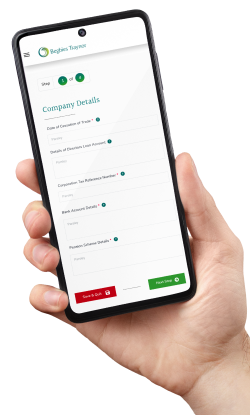Liquidating a limited company due to insolvency requires the input of a licensed insolvency practitioner to administer the process. As the expertise of an insolvency practitioner is needed, this will attract professional fees which need to be paid for.
Unfortunately, it is often the case that business financial problems often go hand-in-hand with personal financial problems. Due to this, many directors worry about being able to afford to liquidate their company once it becomes insolvent.
So how can you pay the professional fees required when you place your company into voluntary liquidation?
In many cases, the cost of liquidating a limited company is paid for using the value of company assets. This means directors are not required to contribute to the cost of the liquidation from their personal funds at all.
The liquidation of a company involves the insolvency practitioner identifying and selling assets belonging to the business in order to raise funds to repay outstanding creditors as far as possible.
Prior to any creditors receiving any money from the liquidation process, the insolvency practitioner will first ensure their professional fees are fully paid for. This means that they will be first in line when it comes to distributing the funds realised from the sale of company assets. This is why many liquidation cases do not require directors to personally contribute to the cost, as this has already been covered by the sale of company assets.
If the sale of company assets doesn’t generate sufficient cash to pay the insolvency practitioner's fees in total, you will be required to make up the shortfall using personal funds.
If your finances allow, you could dip into your savings, or consider take out a loan or other form of personal finance to make up the difference.
Concerned about the National Insurance increase?
For the 2024-25 tax year, the rate of employer National Insurance increases from 13.8% to 15% adding yet more pressure onto already squeezed cash flows. If you are worried about the impact this could have on your company’s finances, talk to the experts at UK Liquidators. As licensed insolvency practitioners we can explain your options and help you plot a way forward. Call today on 0800 063 9262.
Some insolvency practices offer instalment plans if a company director needs help in paying the liquidation fees. Paying in instalments lowers the impact on your own finances by helping you spread the cost over a number of months.
Whether you will be permitted to pay the liquidation fees in instalments will depend on a number of factors including the total cost of the liquidation, the shortfall you will have, and your personal financial position.
If you believe you will need to enter into an instalment plan to pay for your liquidation fees, you should enquire whether this is an option with your insolvency practitioner prior to going ahead with the liquidation.
Liquidation Portal
For Company Directors

It’s not a widely known fact, but directors of an insolvent company may be able to claim redundancy pay and other statutory entitlements under certain conditions. To be eligible for director redundancy, you’ll need to have:
Redundancy pay could provide you with the money to pay the liquidation fees, and possibly to also support your personal financial situation. We can help you establish whether or not you’re eligible for director redundancy, and support you in making a claim.
Start your online liquidation today
If you have decided liquidation is the right option for your limited company, you can take the first step and begin the process online using our online portal. Starting the process is quick, simple, and can be done at a time that suits you. Your information will be submitted to your local UK Liquidators insolvency practitioner who will be with you every step of the way. Click here to start your company’s liquidation online.
You may have heard that company dissolution - also known as strike off - is a good method of closing down a company which is no longer needed or wanted. It’s certainly inexpensive as it only costs £33 on application to Companies House.
As the company is insolvent and facing liquidation, however, it’s unlikely that Companies House would grant the strike off application as the process is only designed for companies that can repay their creditors in full.
If you company is able to repay all outstanding creditors in full, however, liquidation may not be needed, and strike off - or dissolution - could be a more cost-effective option.
Please get in touch with our partner-led team for more trustworthy guidance on all aspects of company liquidation and company insolvency. We’re liquidation specialists and can offer you a free, same-day consultation so you can quickly take the action you need to protect yourself, your company, and your creditors from further losses.
By completing the test, you will receive:
If you are considering liquidation for your company, taking expert advice at an early stage is crucial. At UK Liquidators, our team of licensed insolvency practitioners are committed to providing limited company directors with the help and advice they need to make an informed decision.




Looking for immediate support?
Complete the below to get in touch